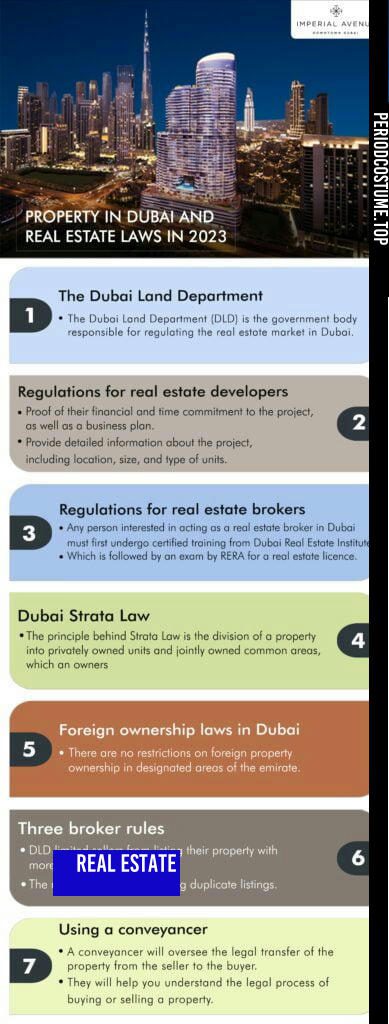Real Estate Law in Dubai: An Overview
Welcome to our guide on Real Estate Law in Dubai! Whether you’re a first-time homebuyer, a seasoned investor, or simply curious about the regulations governing property transactions in this bustling city, we’ve got you covered. Dubai’s real estate market is known for its dynamism and growth, attracting buyers and developers from all corners of the globe. In this overview, we will delve into the key aspects of real estate law in Dubai, shedding light on ownership rights, rental regulations, and more. Let’s navigate through the legal landscape together to ensure a smooth and informed journey in the Dubai property market.
Overview of Real Estate Laws in Dubai
Dubai’s real estate laws are designed to protect the rights of both buyers and sellers in the property market. The laws are governed by the Dubai Land Department (DLD) and are aimed at creating a transparent and efficient real estate sector in the city. One of the key laws that govern real estate transactions in Dubai is Law No. 13 of 2008, also known as the Real Estate Regulatory Agency (RERA) Law.
This law sets out the rights and obligations of both buyers and sellers in a real estate transaction. It outlines the procedures for buying and selling property, as well as the requirements for registering property transactions with the DLD. The law also establishes rules for the conduct of real estate agents, developers, and property management companies.
Under the RERA Law, all property transactions in Dubai must be registered with the DLD to be legally valid. This helps to protect buyers from fraudulent transactions and ensures that all parties involved in the transaction are aware of their rights and responsibilities. The law also regulates the conduct of real estate agents and developers, requiring them to be licensed by RERA and adhere to certain professional standards.
In addition to the RERA Law, there are other regulations that govern specific aspects of the real estate market in Dubai. For example, Law No. 8 of 2007 regulates the escrow accounts that developers are required to set up for off-plan projects. These accounts are designed to protect buyers by ensuring that their funds are only used for the construction of the property.
Another important law in Dubai’s real estate sector is Law No. 26 of 2007, which regulates the relationship between landlords and tenants. This law sets out the rights and obligations of both parties in a tenancy agreement, including the procedures for rent increases, eviction, and dispute resolution.
Overall, Dubai’s real estate laws are designed to create a fair and transparent property market that protects the rights of all parties involved in a transaction. By understanding and adhering to these laws, buyers and sellers can ensure that their real estate transactions are conducted in a legal and ethical manner.
Rights and Protections for Property Owners in Dubai
Property owners in Dubai are afforded a number of rights and protections under the UAE legal system. These rights are designed to ensure that property owners are able to enjoy their investment with peace of mind. Here are some of the key rights and protections for property owners in Dubai:
1. Ownership Rights: Property owners in Dubai have the right to buy, sell, lease, and develop their property as they see fit. This includes the right to make any modifications or improvements to the property, subject to the approval of the relevant authorities. Owners also have the right to transfer their property to heirs or beneficiaries in the event of their death.
2. Protection Against Unlawful Eviction: Property owners in Dubai are protected against unlawful eviction. Landlords are required to follow the proper legal procedures if they wish to evict a tenant, and tenants are afforded certain rights and protections under the law. This helps to prevent landlords from taking advantage of their tenants and ensures that property owners are able to maintain control over their investment.
3. Dispute Resolution: In the event of a dispute between a property owner and a tenant, the UAE legal system provides mechanisms for resolving the conflict. Property owners can seek redress through the Dubai Land Department or through the courts, depending on the nature of the dispute. This ensures that property owners have access to a fair and impartial process for resolving conflicts.
4. Investment Protection: Dubai has strict laws in place to protect the rights of property investors. These laws are designed to prevent fraud, misrepresentation, and other forms of misconduct in the real estate market. Property owners can rest assured that their investments are protected by a robust legal framework that prioritizes transparency and accountability.
5. Maintenance and Repair: Property owners in Dubai have the right to expect their property to be maintained and repaired in a timely manner. Landlords are responsible for ensuring that the property is in good condition and that any necessary repairs are carried out promptly. Failure to do so can result in legal action being taken against the landlord.
Overall, property owners in Dubai enjoy a high level of rights and protections under the law. These protections are designed to ensure that property owners are able to make the most of their investment while also safeguarding the interests of tenants and investors. By understanding their rights and responsibilities, property owners can navigate the real estate market with confidence and security.
Regulations for Real Estate Agents in Dubai
Real estate agents in Dubai are governed by a set of regulations and laws to ensure transparency and professionalism in the industry. The Real Estate Regulatory Agency (RERA) is the governing body responsible for overseeing real estate transactions and licensing agents in Dubai. Agents are required to comply with the regulations set by RERA to legally operate in the market.
To become a licensed real estate agent in Dubai, individuals must meet certain criteria set by RERA. This includes completing a training course approved by RERA, passing an exam, and undergoing a background check. Once licensed, agents are required to renew their registration annually and participate in continuing education programs to stay updated on the latest industry trends and regulations.
Real estate agents in Dubai are also required to adhere to a strict code of conduct set by RERA. This includes being honest and transparent in all dealings with clients, maintaining the confidentiality of client information, and acting in the best interests of their clients at all times. Agents are also prohibited from engaging in any dishonest or unethical practices, such as misrepresenting properties or inflating prices.
One of the key regulations for real estate agents in Dubai is the requirement to use standardized forms and contracts approved by RERA for all transactions. This ensures that all parties involved in a real estate transaction are protected and that the terms of the deal are clearly outlined and agreed upon. Agents are also required to provide clients with all necessary information about a property, including any potential issues or risks, to help them make informed decisions.
In addition to regulations set by RERA, real estate agents in Dubai are also subject to the laws and regulations governing the real estate market in the emirate. This includes laws related to property ownership, leasing, and sales, as well as regulations regarding advertising and marketing practices. Agents are required to stay informed about the latest laws and regulations affecting the industry to ensure compliance and protect the interests of their clients.
Common Legal Issues in Dubai Real Estate Transactions
When it comes to real estate transactions in Dubai, there are several common legal issues that buyers, sellers, and investors need to be aware of in order to navigate the market successfully. Here are some of the most prevalent legal challenges that individuals may encounter:
1. Ownership Restrictions: One of the key legal issues in Dubai real estate is the restrictions on foreign ownership. In most cases, non-GCC nationals are only allowed to own freehold property in certain designated areas, while in other areas they can only purchase leasehold property with limited tenure. It’s crucial for foreign investors to understand these ownership restrictions before entering into any real estate transactions in Dubai.
2. Title Deed Verification: Verifying the authenticity of a property’s title deed is essential to ensure that the seller has the legal right to transfer ownership. Title deeds must be valid and up to date, and any discrepancies or issues must be resolved before proceeding with the transaction. Failure to conduct thorough due diligence on the title deed can lead to legal complications and financial losses for the buyer.
3. Off-Plan Property Risks: Investing in off-plan properties is a popular option in Dubai, but it comes with its own set of legal risks. Buyers need to be aware of the developer’s reputation, track record, and financial stability before committing to purchasing off-plan property. Delays in construction, changes in project specifications, or even developer insolvency can pose significant legal challenges for buyers in off-plan transactions.
4. Contractual Disputes: Contractual disputes are a common legal issue in Dubai real estate transactions, often arising from disagreements over terms and conditions, payment schedules, property defects, or breach of contract. It’s important for buyers and sellers to seek legal advice and have a clear understanding of their rights and obligations outlined in the contract. Engaging a qualified real estate lawyer can help mitigate the risk of contractual disputes and ensure a smooth transaction process.
In conclusion, navigating the Dubai real estate market requires a thorough understanding of the common legal issues that may arise during transactions. By staying informed and seeking professional legal advice when needed, individuals can protect their interests and secure successful real estate deals in Dubai.
Recent Changes in Real Estate Laws in Dubai
Over the past few years, Dubai has made significant changes to its real estate laws in order to attract more investors and improve transparency in the market. These changes have been welcomed by both local and international investors, as they provide more protection and clarity for those looking to invest in Dubai’s real estate market.
One of the most significant changes in Dubai’s real estate laws is the introduction of the new Strata Title Law, which came into effect in 2019. This law allows for the subdivision of buildings into individual units, giving owners more control over their properties and allowing for more efficient management of shared facilities such as gyms and swimming pools. This has been a major boost for the real estate market in Dubai, as it provides more flexibility for investors and improves the overall value of properties.
Another important change in Dubai’s real estate laws is the introduction of the Dubai Land Department’s new Rental Dispute Resolution Centre. This centre aims to streamline the process of resolving disputes between landlords and tenants, making it easier for both parties to reach a fair resolution. This has helped to improve the overall rental market in Dubai, providing more security for tenants and landlords alike.
In addition, Dubai has also introduced new regulations to protect off-plan buyers, who make up a significant portion of the real estate market in the city. The Dubai Land Department has implemented new regulations to ensure that developers deliver projects on time and to the agreed-upon specifications, providing more protection for buyers who are investing in off-plan properties.
Furthermore, Dubai has also introduced new regulations to combat money laundering and fraud in the real estate sector. The Dubai Land Department has implemented stricter due diligence procedures for property transactions, making it more difficult for individuals to engage in illegal activities within the real estate market. These regulations have helped to improve the overall integrity of the market and provide more security for investors.
Overall, the recent changes in Dubai’s real estate laws have had a positive impact on the market, providing more protection and transparency for investors. With these new regulations in place, Dubai continues to be an attractive destination for real estate investment, offering a secure and thriving market for both local and international investors.







